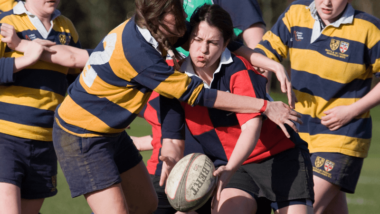LGBT lobby group Stonewall is campaigning against an influential report that warns of the dangers of biological men playing in the women’s game.
The official World Rugby report recognises that men are stronger, heavier and faster and pose a significant risk of injury to women in a tackle.
Stonewall, however, labelled the findings “exclusionary”, whilst remaining silent about the dangers faced by female players.
‘Downright dangerous’
Campaign and consultancy group, Fair Play For Women, slammed Stonewall’s position, saying: “Sports categories ARE exclusionary. That’s what makes them effective as a category.”
It added: “The male sex is excluded from the female sex category because of the physical advantages of being male.”
One transgender writer commented: “Trans rights do not include the right for (male) transwomen to plough through (female) women on the rugby field. This is not only unfair, it is downright dangerous.”
Campaign group For Women Scotland commended World Rugby, saying it was “absolutely correct to value women’s lives, safety and participation”.
‘Clear safety risk’
England Rugby currently allows men to play in the women’s game if they undergo two years of testosterone reduction treatment and then continue to maintain low levels of the hormone in their blood.
But research recently reported by World Rugby shows that a reduction of testosterone “does not lead to a proportionate reduction in mass, muscle mass, strength or power” and presents a “clear safety risk”.
It calculates that players who are born as men “are stronger by 25-50%, are 30% more powerful, 40% heavier, and about 15% faster” than women playing in the same competitive matches and estimates “at least a 20-30% greater risk” of a female player being injured if tackled by a biological male.
Rugby Union already has one of the highest incidence of reported injuries in professional team sport.
Australian Rugby urged to ban men from women’s game
World Rugby to ban men from women’s game because of ‘significant injury risk’
Olympic legend Daley Thompson: ‘Patently unfair’ for men to compete in women’s events


